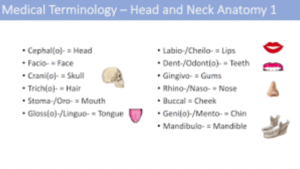When Herbs and Medications Collide?
You might think mixing herbs and prescription meds is as harmless as adding a dash of cinnamon to your morning coffee. But herb and medication interactions are no joke — they can sneak up on you in surprising and sometimes dangerous ways. After all, herbs may be natural, but that doesn’t always mean they’re safe to combine with medications.
But here’s the catch: herb medication interactions can sneak up on you in ways you never expected. Sometimes, the blend of herbs and drugs can create confusion in your body’s chemistry, leading to problems ranging from mild discomfort to life-threatening emergencies.
Today, we’re taking a deep, yet easy-to-understand look at how drug and herb interactions happen, why they often get overlooked, and what you can do to protect yourself — including how a good herbal supplement interaction checker can be your best friend.
The False Sense of Security Around “Natural”

If you’re like many people, you probably believe that because something is “natural,” it’s automatically safe. The idea that plants and herbs can only help, never harm, is deeply rooted in popular culture and even our daily conversations.
But here’s a reality check: nature is powerful — and sometimes dangerous. Remember, poison ivy is natural. So is hemlock, and even deadly nightshade. These plants pack chemicals strong enough to harm or kill.
Even common herbs that people take as supplements contain active compounds that can affect how your body processes medications. This is the core of herb medication interactions.
Ignoring this can lead to serious health risks.
What Are Herb Medication Interactions?

So what does it mean when we talk about herb medication interactions?
Simply put, it’s what happens when an herb influences the way your body absorbs, metabolizes, or responds to a prescription or over-the-counter medication.
Your liver plays a starring role here. It acts like the body’s chemical processing plant, using special enzymes — mainly from the cytochrome P450 family — to break down drugs so they can work correctly or get safely eliminated.
But some herbs can throw a wrench into the system by:
- Speeding up enzyme activity, making your meds get broken down too quickly and lose effectiveness.
- Slowing down these enzymes, causing medications to build up to dangerous levels.
- Acting on the same pathways as your medication, intensifying effects or side effects unexpectedly.
These drug and herb interactions aren’t just theory — they happen every day, affecting millions.
Why Do Herb Drug Interactions Often Go Unnoticed?

One of the biggest reasons why herb drug interactions slip under the radar is communication gaps.
Many patients don’t tell their doctors or pharmacists about herbal supplements, either because they don’t think of them as “medications” or they’re worried about judgment.
On the flip side, healthcare providers often don’t ask about herbal supplement use — partly due to time constraints, partly because of limited training in herbal medicine.
This disconnect means many people are taking combinations that increase risks of side effects or reduce treatment effectiveness — all without knowing it.
Examples of Herb Medication Interactions You Should Know About

Now, let’s get concrete. Here are some well-documented herb medication interactions you should keep on your radar:
- St. John’s Wort + Antidepressants
St. John’s Wort is often taken for mood support, but it can significantly increase the risk of serotonin syndrome when combined with antidepressants like SSRIs or SNRIs. This potentially life-threatening condition causes confusion, rapid heartbeat, sweating, and muscle spasms.
- Ginkgo Biloba + Blood Thinners
Ginkgo is popular for memory and focus, but it also acts as a blood thinner. Combine it with medications like warfarin or aspirin, and you risk dangerous bleeding events.
- Garlic Supplements + Blood Thinners
Garlic, especially in supplement form, can also thin the blood. Taking it alongside blood thinners without monitoring can lead to unexpected bruising or internal bleeding.
- Turmeric + Diabetes Medications
Turmeric’s anti-inflammatory benefits are well-known, but it can lower blood sugar levels. If you’re on diabetes meds, this can cause hypoglycemia — dangerously low blood sugar.
- Licorice Root + Diuretics
Licorice lowers potassium levels, as do many diuretics. Together, they can cause serious electrolyte imbalances, affecting heart rhythm and muscle function.
- Echinacea + Immunosuppressants
People often take echinacea to boost immunity, but if you’re on drugs that suppress your immune system (for example, after organ transplant), this can interfere with your treatment.
- CBD Oil + Sedatives
CBD is all the rage, but mixing it with sedatives like benzodiazepines can amplify drowsiness and slow breathing — a potentially dangerous combo.
How to Use an Herbal Supplement Interaction Checker to Stay Safe

You don’t have to be an expert to protect yourself from harmful herb medication interactions. One of the easiest ways is to use a trusted herbal supplement interaction checker.
These online tools allow you to enter your medications and supplements and flag potential interactions.
Some of the best are:
- Drugs.com Interaction Checker
- Medscape Drug Interaction Checker
- NIH Office of Dietary Supplements
Remember, though: these tools are helpful, but they’re no substitute for a conversation with your healthcare provider.
The Role of Your Healthcare Team

Healthcare providers should be partners in managing herb medication interactions. Be proactive:
- Always list all your medications and supplements at doctor visits.
- Don’t hesitate to ask if your healthcare provider knows about your supplements.
- Request a medication review, which many pharmacists offer free of charge.
Pharmacists are medication experts and can often catch drug and herb interactions your doctor might miss.
Signs That You Might Be Experiencing Herb Medication Interactions
Sometimes, it’s easy to overlook symptoms that might be caused by herb medication interactions. These signs can be subtle or mistaken for other issues.
Watch out for:
- Unexpected side effects like dizziness, nausea, or headaches.
- Medications seeming less effective.
- Unexplained bruising or bleeding.
- Changes in mood or energy.
- Any new symptoms that started after introducing a herbal supplement.
If you notice any of these, talk to your doctor or pharmacist — and bring a full list of everything you take, including supplements.
Tips for Safely Using Herbs and Medications Together

Want to enjoy the benefits of herbal supplements without risking dangerous herb drug interactions? Here’s what to do:
- Be Open and Honest: Always tell your healthcare providers about all herbs and supplements you take.
- Use One New Supplement at a Time: This way, if side effects occur, you’ll know what caused them.
- Keep an Updated List: Carry a current list of your medications and supplements, including dosages.
- Check Interactions Regularly: Use an herbal supplement interaction checker before starting anything new.
- Don’t Self-Adjust Medications: Never change or stop prescribed medications without consulting your doctor.
Real Stories: When Herb Medication Interactions Go Wrong
Sarah, 67, started taking ginkgo biloba for memory support while on blood thinners for atrial fibrillation. After a few weeks, she noticed unusual bruising and nosebleeds. A visit to her pharmacist revealed a classic herb medication interaction — ginkgo was thinning her blood too much in combination with warfarin. After adjusting her supplements and medications under medical supervision, Sarah recovered safely.
The Bigger Picture: Why Awareness Matters
Millions of people use herbal supplements alongside prescription medications. But research shows that herb drug interactions cause thousands of preventable hospitalizations each year.
Raising awareness about herb medication interactions and promoting tools like herbal drug interaction checkers can help save lives.
FAQs About Herb Medication Interactions

Q: What is an herbal supplement interaction checker?
A: It’s an online tool that helps identify potential interactions between herbs and medications, helping you avoid harmful combinations.
Q: Can all herbs interact with medications?
A: Not all, but many do. It’s safest to check each herb before combining with medications.
Q: Are herb medication interactions common?
A: Yes. With millions taking both herbs and prescription drugs, drug and herb interactions happen more often than most people realize.
Q: Should I stop taking supplements if I’m on medication?
A: Not necessarily. Talk to your healthcare provider and use an herbal supplement interaction checker to make informed decisions.
Q: How often should I update my list of medications and supplements?
A: Every time you start or stop a medication or supplement, update your list and share it with your healthcare team.
Final Thoughts: Your Health, Your Responsibility
You deserve to feel safe and confident about everything you put in your body. While herbs can be wonderful allies, they’re not without risks when mixed with medications.
By staying informed about herb medication interactions, using reliable herbal drug interaction checkers, and keeping your healthcare providers in the loop, you take control of your health story.
Because at the end of the day, your body is your most important investment — and it deserves your full attention.
You can also use our free tool to check interactions at http://EvaluateMyMeds.com — it’s fast, easy, and trusted.
Check out our blog on Berberine:
Is Berberine the New Ozempic?: https://evaluatemymeds.com/index.php/2025/07/01/is-berberine-the-new-ozempic/








